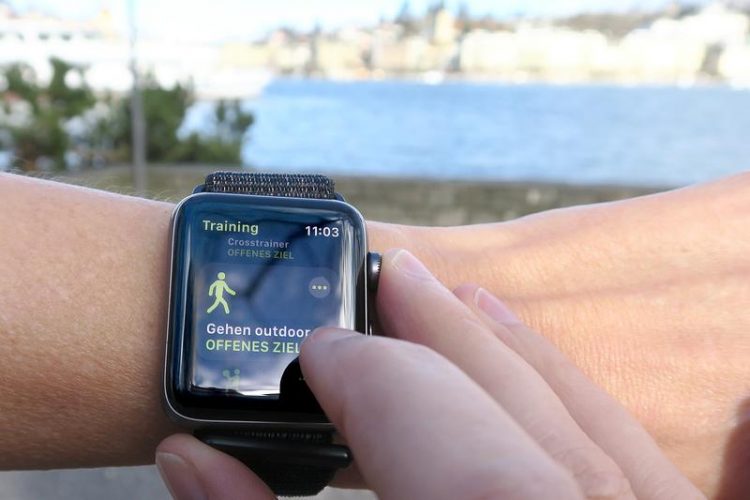High acceptance for smart products

Smartwatches are among the most popular smart products according to the survey University of Lucerne
The “Smart Products Report 2020” by the Lucerne and St. Gallen universities on the use and consumer perception of smart products is based on an online survey which was carried out with 1004 participants in Swiss households.
Prof. Dr. Reto Hofstetter from the University of Lucerne and Prof. Dr. Emanuel de Bellis from the University of St. Gallen were responsible for the study.
The 15 most important findings from the study published today for the first time provide facts and figures for the use and consumer perception of smart products in Switzerland. The smartphone was explicitly excluded from the survey.
A high number of users of smart products
In addition to the 72 per cent of those questioned who already have smart products, a total of 59 per cent state that they can imagine buying at least one smart product within the next 12 months.
81 per cent of the Swiss population is expected to own at least one smart product by the end of this year. The most popular smart products are smart TVs (30 per cent), smart watches (28 per cent), smart navigation systems (25 per cent) and robot vacuum cleaners (20 per cent).
Interaction with smart products
The majority of users perceive their interaction with smart products as a partnership. Those questioned also state that it is the human that controls the task rather than the product.
It is not uncommon for users to give their electronic helpers nicknames, just under a quarter of those questioned doing this. The majority would like smart products to be connected with each other and to be able to communicate with one another.
Pros and cons
According to the Smart Products Report, the greatest advantages for using smart products lie in the convenience they offer and the time that they save. Many others see a further positive aspect in keeping up with the trend and technology.
The greatest disadvantages are their cost and the collection of personal data often perceived as being connected with their use. Some of those questioned also fear that too much of their life focuses on smart products.
Trust and control
Particularly important for the Swiss when using smarter products is the aspect of trust. In this case, however, trust also means control: the option of being able to intervene at any time with the independently acting product is very important for the majority of those questioned.
Smart products being certified and collected data only being used for the intended purpose also increases trust.
“Smart Products Report 2020” study and further information
The “Smart Products Report 2020” study was carried out by the Faculty of Economics and Management of the University of Lucerne and the Institute for Customer Insight at the University of St. Gallen in cooperation with the Centralschweizerische Kraftwerke AG and Vorwerk Schweiz AG. It can be ordered from the following address (cost applies): www.unilu.ch/swiss-consumer-studies
Prof. Dr. Reto Hofstetter
Professor of Digital Marketing
University of Lucerne
Faculty of Economics and Management
+41 41 229 58 80
reto.hofstetter@unilu.ch
Prof. Dr. Emanuel de Bellis
Assistant Professor for Marketing and Research Methods
University of St.Gallen
Institute for Customer Insight+41 71 224 72 18
emanuel.debellis@unisg.ch
https://www.unilu.ch/fileadmin/fakultaeten/wf/Dekanat/Dok/Studien/Smart_Products… Fact sheet with the 15 most important findings (in German)
https://www.unilu.ch/fakultaeten/wf/formularseiten/swiss-consumer-studies/smart-… Video on the most important findings (in German)
https://www.unilu.ch/swiss-consumer-studies Ordering Smart Products Report 2020 (cost applies)
Media Contact
All latest news from the category: Social Sciences
This area deals with the latest developments in the field of empirical and theoretical research as it relates to the structure and function of institutes and systems, their social interdependence and how such systems interact with individual behavior processes.
innovations-report offers informative reports and articles related to the social sciences field including demographic developments, family and career issues, geriatric research, conflict research, generational studies and criminology research.
Newest articles

Innovative vortex beam technology
…unleashes ultra-secure, high-capacity data transmission. Scientists have developed a breakthrough optical technology that could dramatically enhance the capacity and security of data transmission (Fig. 1). By utilizing a new type…

Tiny dancers: Scientists synchronise bacterial motion
Researchers at TU Delft have discovered that E. coli bacteria can synchronise their movements, creating order in seemingly random biological systems. By trapping individual bacteria in micro-engineered circular cavities and…

Primary investigation on ram-rotor detonation engine
Detonation is a supersonic combustion wave, characterized by a shock wave driven by the energy release from closely coupled chemical reactions. It is a typical form of pressure gain combustion,…



